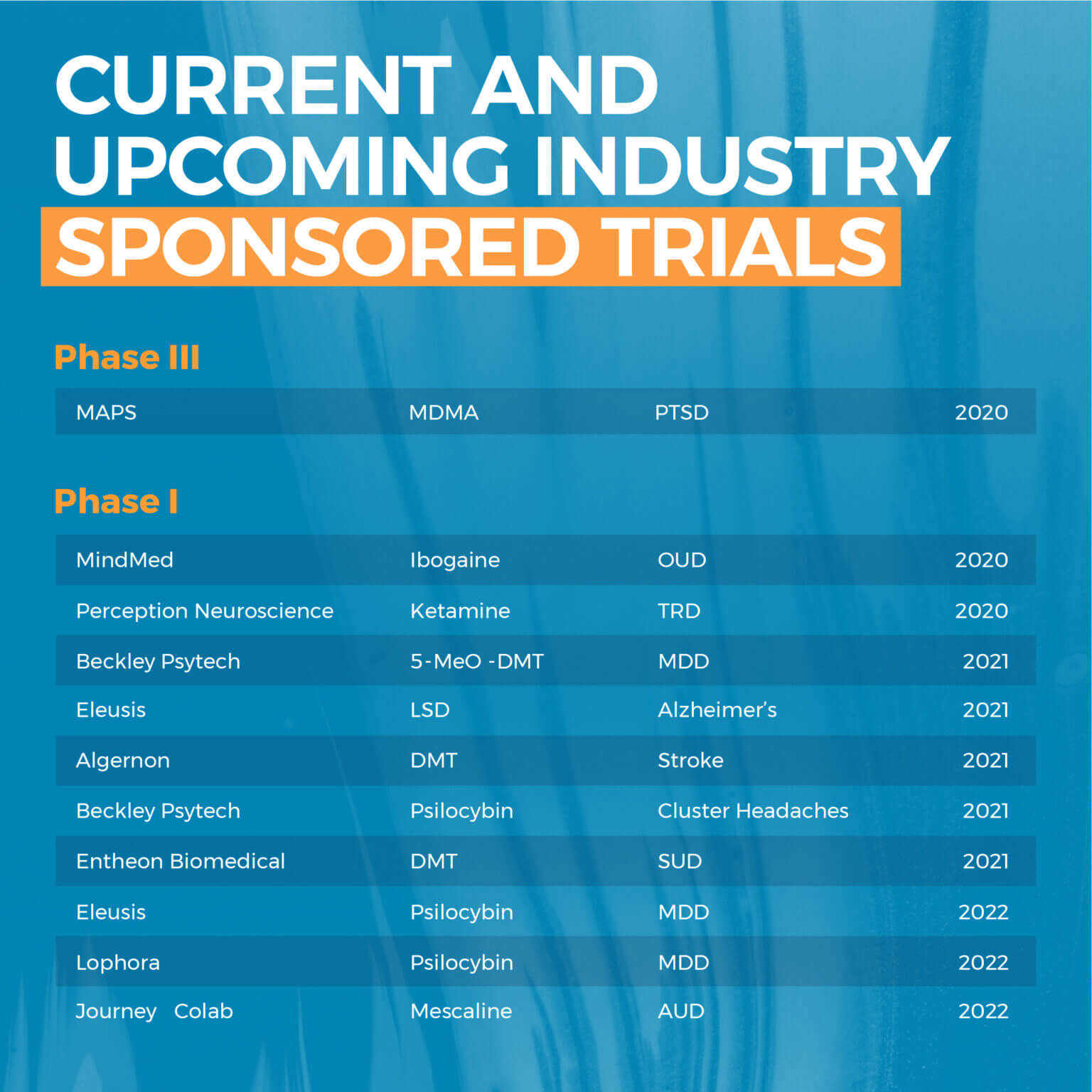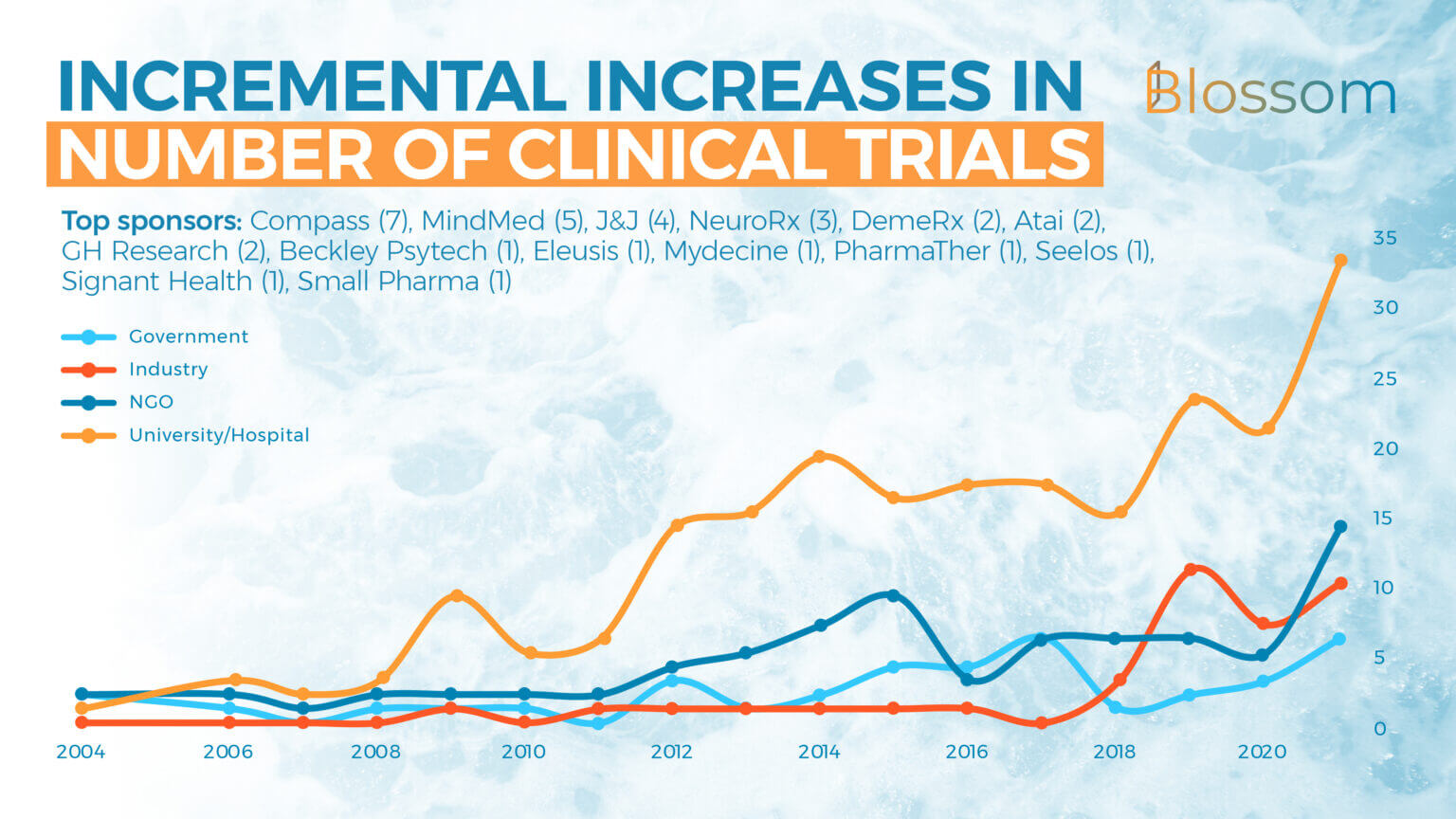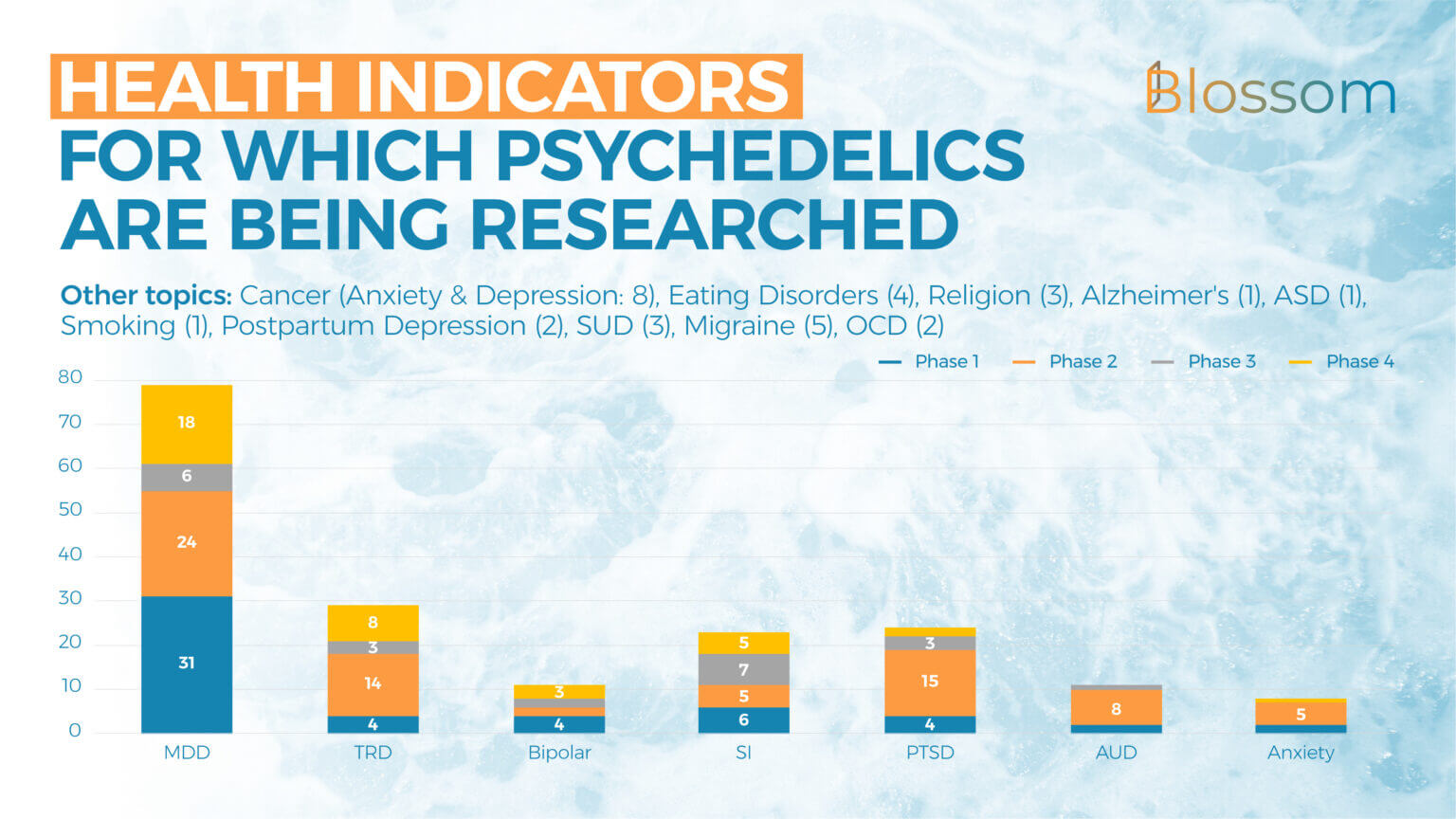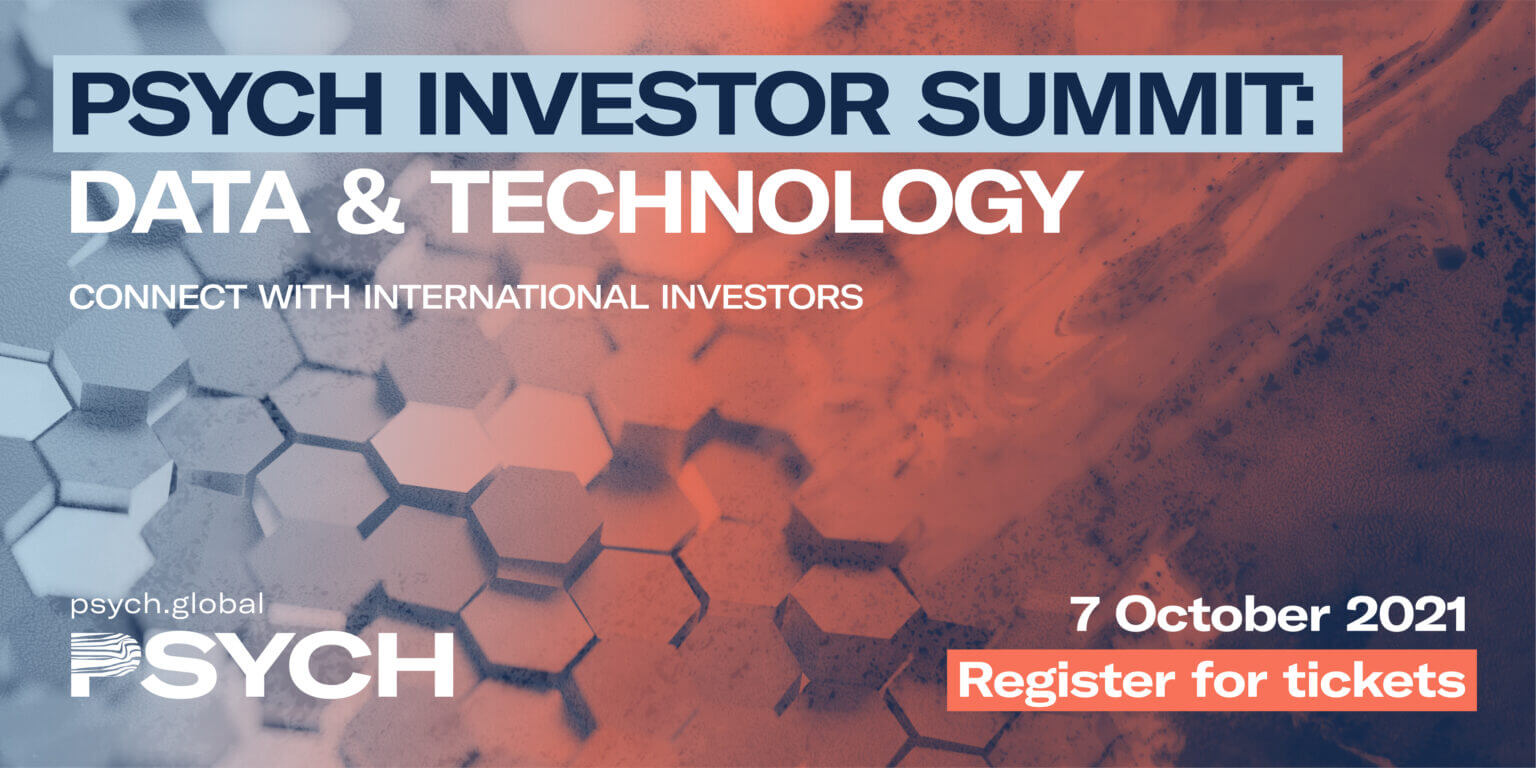
Big data has revolutionised healthcare, enhancing treatment safety, efficacy and operational efficiency. The technology has become crucial to accelerate drug discovery and development, underpinning the clinical trials that demonstrate psychedelic medicines’ groundbreaking potential.
Study results indicate significantly improved patient outcomes, which will instigate further investigations to treat associated disorders, with digital innovation a vehicle to drive the industry to new frontiers. Digital solutions promise to solve many of the challenges faced by organisations that are integrating breakthrough therapies into the medical framework, providing invaluable clinical data which will enable researchers, regulators and medical practitioners to make informed decisions.

Drug discovery
To secure market exclusivity, pharmaceutical companies are patenting psychoactive compounds derived from classic psychedelics, with the most promising formulas promoted to clinical trials. As the process is meticulous and often protracted, the ability to streamline the task with artificial intelligence is transformational.
Algorithms can discover previously unrecognised data patterns to identify new treatments, in addition to associations that can map the drug’s capacity through predictive analytics. This approach to drug discovery is based on statistical evidence at a scale previously inconceivable, enabling manufacturers to compile comprehensive records from disparate sources and to extract insights at an unprecedented rate.

Drug development
This ability to store, access and analyse large amounts of information is crucial in clinical trials, which are critical to gain regulatory approval and pave a drug’s route to market. An essential but extensive and expensive endeavour, the rewards for investors can be high and further increased by reducing the trial’s timeframe and required resources.
Machine learning can better identify suitable individuals for trials in patient populations, based on a number of markers, as a lack of participants often hampers research initiatives. Once recruited, patient outcomes can be closely monitored to reveal correlations, with the data of individuals aggregated to personalise treatments and improve their results.
Collating patient statistics at large provides regulators with verification of a medication’s safety and efficacy – the quantity of data being key to accuracy and reliability – promoting its approval and adoption by medical practitioners. Many of these therapies look to cure treatment-resistant disorders and illnesses with unmet medical needs and underserved patients.

As frameworks for psychedelic research are established across the globe, the drug development race is increasingly competitive. Leveraging technology to analyse datasets efficiently, researchers can accurately identify opportunities to refine treatments quickly cost-effectively. Big data, machine learning and artificial intelligence can expedite drug discovery and development, which may create a crucial first-mover advantage for drug developers, driving demand for innovation and investment as a result.
Digital innovation is the focus of the upcoming PSYCH Investor Summit on 7 October, which will highlight emerging technologies set to transform the psychedelics industry. The event will feature panel discussions with industry thought leaders, expert insight from distinguished researchers, and investor-focused company presentations from organisations moving the needle. Complimentary registration for the PSYCH Investor Summit: Data & Technology is now open.



